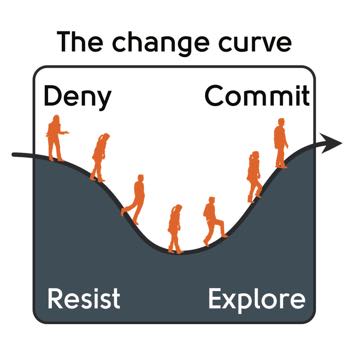How long does a divorce take?
I’m frequently asked how long it takes to get a divorce. Usually, the answer is ‘many months’. I imagine if you’re the instigator of the divorce, this isn’t what you want to hear.
If you’ve moved on or even booked the ‘next’ wedding (as one of our customers last week had), then the court process is slow and frustrating.
In this blog, I set out the divorce process, the typical time it takes to divorce in the UK, and some tips for speeding your divorce up.
It's important to remember that the court processing time can vary depending on its daily capacity.
How long does it take to get divorced?
On average, it takes around seven months for a divorce or dissolution to be finalised through the courts in England and Wales.
If you are getting a consent order (the document that formalises your financial settlement) at the same time as divorcing, the average time it takes to get a divorce and finalise your financial split extends by six weeks to twelve months.
What's the minimum time it takes to get divorced?
It will take a minimum of seven months following the introduction of 'no-fault divorce' in April 2022. This timeline will extend depending on the complexity of your divorce.
Answer three simple questions to receive a personalised divorce timeline.
What You Need To Know Before You Start The Divorce Process
You need to be married for 12 months
The minimum length of time you must be married before you can get divorced is one year. If you’ve been married for under a year, you can have your divorce application drafted and ready to send, but you cannot submit it until a year after your marriage date.
The other option is to annul your marriage. However, this is hard to do. Find out more about how to annul your marriage via the government website.
Decide on a parenting plan if you have children
We also provide Separating with Children Service that can help you decide on plans and decisions for your children. You might want to think about where your kids are going to live, plan and think about how they'll see you and your ex. Remember that children deal with separations differently from adults, and we take into account the age and stage of children.
Figure out your finances and assets
Deciding and sorting out finance and assets is a difficult process and we can help. You're going to need to think about how to divide your personal properties, assets, investments and savings. You can also make a plan on how to pay divorce fees.
Read our blog on what is a consent order for more information on this part of the process.
Think about who you need to tell
You're going to have to think about who you need to inform about your divorce or separation. Here are some examples:
- mortgage lender
- banks or building societies
- home insurers
- dentist
- GP surgery
7 steps for a faster divorce timeline:
Step one: Prepare emotionally
The most noteworthy point to start with is to take time to emotionally prepare as this is the biggest predictor and will most likely provide you with an answer as to how long your divorce will take. Divorce is an emotional process, and the longer this emotional process takes, the longer the whole process will take. Emotionally prepared couples divorce more quickly and more amicably.
Getting control of your emotions before starting divorce proceedings and adopting a business-like approach will help speed up negotiations. Rushing will make the divorce take longer, watch our short video on emotional preparation here.
If you want to submit the divorce application, don’t rush your partner, instead, take time to invest in the emotional preparation stage. Getting a divorce is a big life change, our advice is to allow them time to get used to the fact that the marriage is over and get advice and if needed. The below chart demonstrates the typical stages someone may go through during the divorce process.

Step two: Agreeing your children and financial arrangements
This is usually the bit that takes the most time. If you’ve already agreed on everything, you can move on to getting your divorce processed through the court. If not, you’ll need to make a list of your finances and agree on what’s going to happen to your assets in the future.
You’ll also need to arrange where the children will live and how you’ll take care of them. This can be tough and consequently, many people seek help from our Divorce Specialists.
You can start the divorce process before you’ve finalised your arrangements; use the time it takes the court to process your divorce to negotiate a settlement.
Step three: Submitting your divorce application (approx. two weeks)
Tip 1. If you have made a sole application for divorce, encourage your ex to return the acknowledgement of service form rather than wait, as this may cause significant delays.
Step four: Wait out the reflection period and then apply for the conditional order (approx. 30 weeks)
You must wait the mandatory 20-week 'cooling-off' period before you can progress to the next stage of the divorce timeline and apply for your conditional order.
If you have made a sole application for divorce, you will also have to wait for your ex to respond to the divorce application. Once you submit your conditional order, a judge will consider whether the marriage has broken down ‘irretrievably’ and if you can get a divorce or not. If a judge is satisfied that it has, your conditional order will be pronounced a few weeks later and you’ll both receive a conditional order certificate from the court.
You will then have to wait six weeks and one day after your conditional order pronouncement date in order to proceed with the next stage of the divorce timeline.
Tip 2. Apply for the conditional order, as soon as you are able to do so.
Step five: Submitting a consent order (after you receive your conditional order certificate)
In addition to applying for your conditional order, you can choose to submit a consent order with your divorce paperwork.
A consent order makes your agreements legally binding and is the only way of having a clean break between you, stopping future claims. Technically, you are still financially tied to each other after your divorce. It is only until you have completed the consent order process through the court that you are no longer financially tied to your ex.
Tip 3. Avoid any nasty surprises in future. Getting a consent order provides the peace of mind that you have finalised your arrangements.
Step six: Applying for your final order (six weeks and one day after your conditional order is received)
Six weeks and one day after your conditional order is pronounced you can apply for a final order. This is the final piece of paperwork in the divorce process. You may wish to wait for your consent order to be granted before applying for your final order.
Tip 4. It's often safer and 'tidier' to get your consent order sealed by the courts before submitting for your final order
Step seven: Your divorce is finalised (approx. two weeks)
Finally, you and your ex-partner will receive the final order certificate. This usually takes two to three weeks to arrive if you apply by post. Or if you apply for your final order online, it usually takes two to three days.
For a more bespoke estimate of how long your divorce may take. You only need to answer a few simple questions and provide your email address so we can send you your divorce timeline straight into your inbox.
How to shorten the divorce timeline
Getting a divorce takes time and the process of obtaining your final order (the certificate that makes your divorce legal) takes longer than people expect.
However, there are a few ways that you can do to make the divorce process run smoothly and quickly. Our quick divorce blog provides advice and information on common myths around speedy divorces along with advice and guidance on making the process faster.
FAQs
How long does it take to divorce?
It takes around seven months for a divorce. How long the divorce process takes comes down to the time taken to process and review the various documents through the courts, along with the mandatory waiting periods.
How quick can you get a divorce if both parties agree?
It takes a minimum of seven months for a divorce to move through the courts. In essence, the length of the divorce timeline comes down to the time it takes to process and review the various documents through the courts, along with the mandatory waiting periods.
How do you get a divorce without a solicitor UK?
You can get a divorce using the government website, or through an online service like amicable. amicable handle all the divorce paperwork so you can focus on what really matters to you.
How much does a divorce cost in the UK?
The cost of divorce varies, depending on the method used. If you are having a DIY divorce, the most it will cost is the initial £612 court fee (unless you are exempt). We have written a helpful guide on the cost of divorce dissolution and how to keep the costs down.
Is it better to submit for divorce or be served?
It doesn’t usually matter, however, you can now apply for divorce jointly with the introduction of no-fault divorce.
How long does an uncontested divorce take?
Divorces take a minimum of seven months to be completed. In general, uncontested divorces tend to be faster and less complex than contested divorces because the couple has already reached an agreement on key issues such as money, property, and child arrangements.
Read More
.webp)
Getting a divorce (for marriages) or dissolution (for civil partnerships) has a reputation for being expensive, but it doesn’t need to be. Luckily, there are plenty of ways to keep the costs down which we've included in this guide.

Starting the divorce or dissolution process can feel daunting. Understanding the divorce process can reduce stress and help you find the best way to file for divorce.
.webp)
Co-founded by Kate Daly and Pip Wilson, amicable is the original ‘couples service’.

Start your amicable divorce journey
Speak to an amicable Divorce Specialist to understand your options and next steps for untying the knot, amicably.
-3.webp)





Comments (30)
My parter isn’t contesting his divorce had to say if he was say either way before the 10th of march and he’s still waiting for his divorce. Who am we. Contact
We offer free telephone help so please call one of our divorces on 07710 595 422 and they will be able to talk through your situation
You say it takes 2weeks at step 7, but how long can you expect to wait for the courts to process the decree absolute? Amicable divorce with a separation agreement and consent order.
Hi Jay, all courts are different but our experience across England is that it’s usually 2-3 weeks.
How long does it take to hear from the court. When an application to dispense with service is made to court
Hi there Miss Mehi, it usually takes around two to three weeks. Please let us know if you have any other questions.
Once the acknowledgement of service has been returned, how long do I have before I can no longer apply for a decree nisi?
Hi Chris – you will always be able to apply for the Decree Nisi once the acknowledgment of service has been received with the court, unless you formally withdraw the application. I hope this is helpful, please call us on 0203 004 4695 if you have any other questions.
Got my date for my decree nisi to be granted in court,my x had agreed to the divorce originally can he change his mind at this stage or am i safe??
Hi Hayley – thanks for getting in touch. Once you have your Decree Nisi the judge has given you permission to get divorced. However, you are not actually divorced until you have the final piece of paper, the Decree Absolute (which you can apply for in six weeks and one day from the date of your Nisi). To be ‘safe’ you will need to wait for the absolute… The risk of anything going wrong is low at this stage but not absent.
At what point will the court confirm that HWF has been recognised and advise of any charges
Hi Lynne – on average it takes the courts around 10 days to process divorce petitions, however, be warned, different courts have different processing times so this can be a lot longer! Once the court processes your divorce papers they will let you know by letter if you have to pay anything.
Hello, Am going currently through an amicable divorce process between me and ex…we had both agreed to go our seperate ways and move on with our lives, after living apart for up to 5years, with the support of our two grown up children. Our decree nisi has gone through, we are waiting to apply for decree absolute soon. My question is how long do we have to wait before the decree absolute is issue after our application? Your advice will be very helpful. Thanks.
Hi, thanks for getting in touch… You have to wait 6 weeks and 1 day from the pronouncement date of the Decree Nisi before you can apply for the Decree Absolute. If you have finances to sort out, then its best to wait until you have a sealed consent order that sets out what’s happening to money and property before applying for the Decree Absolute.
email [email protected] and be happy over your relationship
Hi Katherine, thanks for your comment, is there something we can help you with?
I have been seperate from my wife for 3.5 months in Australia. Can I apply for a divorce now? How long would it take for completion?
I am waiting for my Decree Nisi. We have been separate more than 2 years. is there any possible to speed the process to get Decree absolute?
Do I have to wait for the Decree Nisi before I can apply for a consent order?
Hi We not living with my husband about 15 years. How long is takes to divorce Thank you
Hi I submitted a decree Nici how long will I wait for the Decree absolute to be released
I split from my husband in November 2017. I am aware that we have to be separated for two years before we can get a divorce. I was wondering if I can apply and get the process started now (after 1 and a bit years) and have it all finalised by the time we have been separated 2 years. Or wether I can only start the process and apply after the 2 year separation has passed?
Hi,what is your advice if we both are agree to divorce who should apply to have a discount on court fee me(working) or my wife (have limited capability for work) (not working ) We have joint UC account with more than 6k annual earnings. Thanks
Hi if you have been delegated for over 3 years both wang the divorce how long from applying does it take
Since you only been married a year you can get a divorce with no arguing no financial disagreements and what's the cost
Hi madam i just marry following traditional on 1st dec 19 but legal marriage on 18th Aug 19 After 1 month in marriage me and my wife got misunderstand and I decide to get divorce buy my wife won't divorce I completely hate her now Is that I can apply divorce in 1 year
What is the expected time to get the paperwork AFTER your divorce?
Hi,I’m Karima I open a divorce case and I finished all paper work and my appointment is in July, me and my ex husband we no have nothing no kids no property so my question is that court will finish my case in one appointment or no .
hi I asked my husband for a divorce 10 months ago and he is still refusing and denying his abusive behaviour and adultry. infact now accusing me of this. I'm awaiting the decree nisi to come through and once I can apply for the absolute do we both need to agree finances and child arrangements before the divorce can be finalised? I desperately want to be legally free of him so that i can sell my own house and move away once hes released from prison as he is dangerous, but I'm stuck if he wont agree to anything or sign by papers. would I have to wait 4 years? this is a desperate and scary situation which i wish the law would automatically grant this divorce and not allow it to control me
Hi Louise, I'm sorry to hear that. It's completely up to you whether you choose to sort your finances out before your divorce is finalised. Just so you are aware, divorcing doesn't end your financial relationship with your ex and you can still claim from each other in the future even after your divorce has been finalised. The only way to make financial arrangements legally binding is through a consent order or financial order. This is optional but advised. You can only apply for a consent order or financial order once you reach the decree nisi stage of the divorce (as you have done). Give us a ring for some more advice.